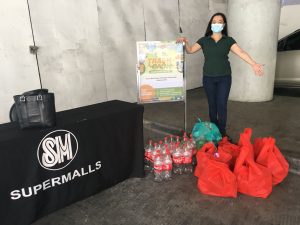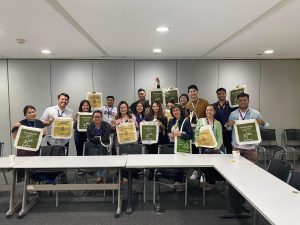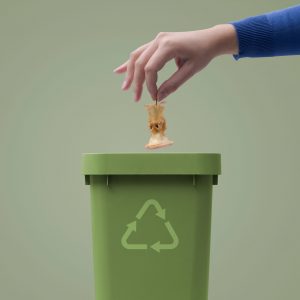As the world continues to weather the health, social, and economic impacts of the spread of COVID-19, various companies, organizations and individuals around the globe are continuously pushing for a better world by providing thorough and transparent sustainability reports, which are starting to be a world-wide cause inspiring small, medium and large companies across the planet.
Hosted by SM Investments, the GRI-SM ASEAN Sustainability Summit 2021, which was held virtually last October 21 and 22, provided knowledge on some of the concerns arising within ASEAN nations, including the on-going pandemic and climate change. The summit also shared insights on various commitments practiced by world leaders and companies that have been successfully providing sustainable solutions to its economy, environment and people.
More than just being a trend, the recently concluded summit proved that sustainability is not just a job for one company nor nation, it is not just a mandated procedure that we should track and tally, but rather served as the air that every individual, organization and company breath in order to last and create more meaningful impacts for every living thing today and for the years to come.
It is great to know that young leaders across the region have been showcasing a better understanding and respect to the environment though their pilot programs, products and services.
For instance, during the first session entitled “Next Generation Leadership: The Driving Force of Sustainability,” Somsak Boonkam, Founder and CEO of Thailand’s Local Alike, have been developing community-based tourism platform dedicated to connecting local communities with travelers who look for meaningful and authentic experiences in his country.
Growing up with limited resources, Somsak shared that through the hardships that he experienced in his life, he was able to understand the needs of their village and through that, he was inspired to come up with the idea to help them by providing decent and meaningful jobs that will elevate their lives and their families’.
In the Philippines, SM’s Mara Sy-Coson shared that being an individual just like everyone else, it is the little initiatives we do that really make a difference. In the case of their retail company, The SM Store, they’ve been supporting suppliers that are promoting environment-friendly bed linens, which are wrapped in its own fabric. Through this process, they’ve eliminated the use of plastics, which are usually thrown out and served as unutilized by-products.
AGREA Agricultural Systems International, Inc. CEO and Founder Cherrie Atilano also highlighted the importance of ecology of dignity, wherein empathy and compassion drove her and her organization to help farmers who are having a hard time to sell their products when lockdowns were implemented last year across the Philippines due to the spread of COVID-19. As she stated: “If this is really your calling and your passion, no matter how hard it is, you will do whatever it takes.”
While, sustainability remains a big challenge to most nations across the world, in Indonesia, Emmeline Hambali, Group Managing Director, Shared Services of Dynapack Asia – a provider of rigid packaging and plastics catering to the South East Asia and China Markets – discussed their company’s latest partnership with Coca-Cola European Partner Company where they are creating a recycling factory in Indonesia, which is scheduled to be commercially available next year.
Bank of the Philippine Islands Vice President Mariana Beatriz Zobel de Ayala highlighted the importance of knowing the real cause behind sustainability and its impacts on big businesses. For her, digital transformation is important nowadays as it serves as an enabler and also an equalizer. She mentioned that the more a company can offer digitally – the wider range of products and individuals that it can reach – the more opportunities it can provide for its country to reach a whole different scale.
“People assume that there’s this tension between sustainability and big businesses, but in big business, arguably, even the most capitalists of people would probably agree that a more productive and more enabled workforce would result in the ideal outcome for the country or for the business. So, ideally, the idea of sustainability is not so kind of far-stretched from the traditional capitalists’ mentality,” she added.
With the on-going pandemic, climate change crisis, and socio-political concerns that are challenging the world’s nations, it is enlightening to know these young leaders who are stepping up not just to do good for their business and the economy, but also for the environment, people and our future generations. Just like what GRI Chairman Eric Hespenheide said: “Sustainability considerations are no longer optional. They have become a critical aspect of business strategy and operational decision making and must be embedded in the corporate DNA through a transformative process.”
“Sustainability considerations are no longer optional. They have become a critical aspect of business strategy and operational decision making and must be embedded in the corporate DNA through a transformative process.”
With Global Reporting Initiative (GRI) serving as a guiding process to various companies in different jurisdiction to highlight and underscore the efforts and challenges they are facing, it is important to note that sustainability is everyone’s job.
The GRI-SM ASEAN Sustainability Summit is just one of the many platforms where companies and individuals, young and traditional leaders can learn from and act together towards a more sustainable future.


